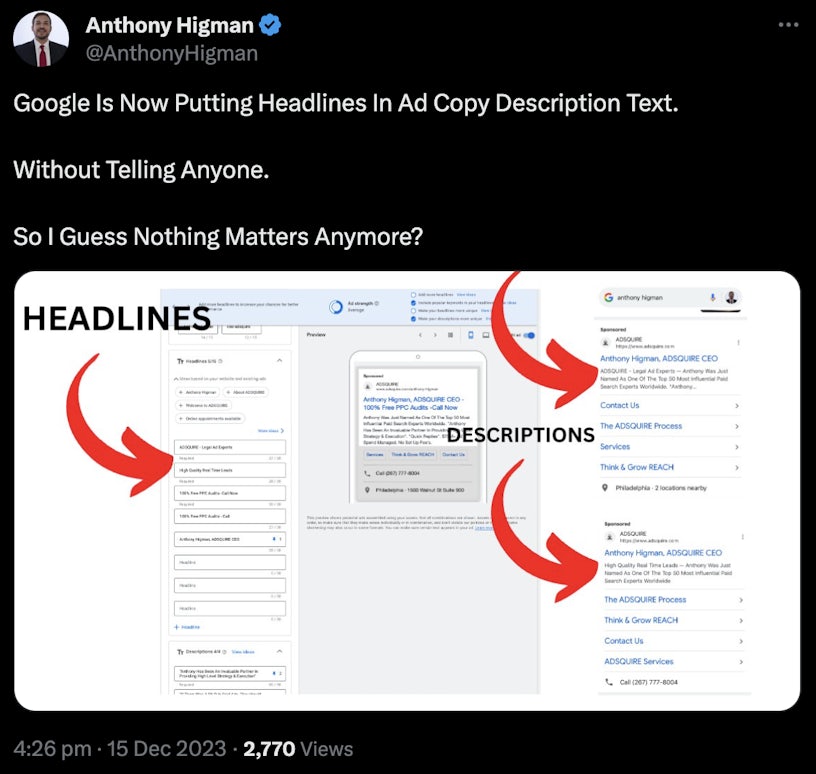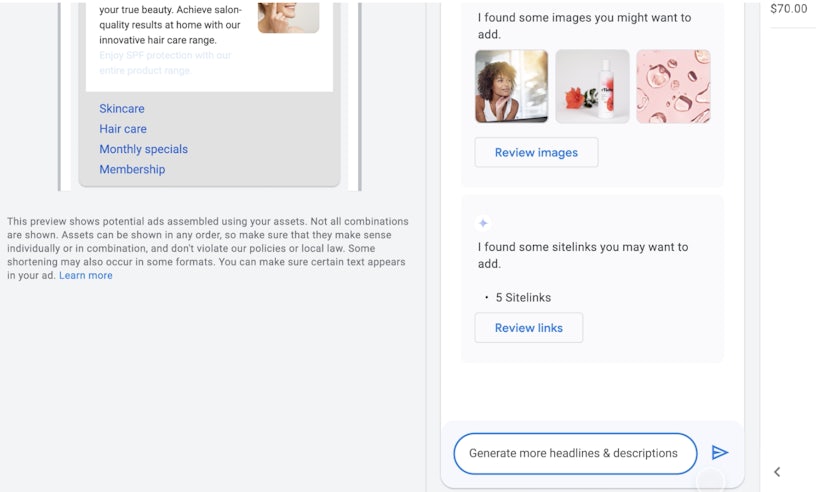Welcome to the latest blog from Impression on Paid Search Industry Updates, where we uncover the latest PPC trends to help you stay ahead of the curve.
New year, new marketing strategies. 2024 has already seen various changes and announcements to the PPC landscape for the upcoming year and advertisers, more than ever, must ensure that their strategy is reflecting the new requirements being pushed out.
Keep reading to discover:
As usual, traffic light imagery is featured throughout to indicate the importance of each new update – red denoting a priority update, green representing a less important update and amber lying somewhere in the middle.
Google Chrome has begun phasing out third-party cookies

Starting on 4th January 2024, Google Chrome began restricting third-party cookies as a default setting for 1% of all Chrome users.
Known as Tracking Protection, this new feature follows Google’s plans of completely removing third-party cookie tracking, announced back in 2020, as a response to ever-increasing concerns surrounding user privacy.
This shift in the privacy landscape for Chrome users is currently subject to Google addressing any competition concerns of the UK’s Competition and Markets Authority (CMA), so we may very well see more changes being implemented throughout the remainder of the year.
Users currently impacted by this change will receive a notification when opening Chrome on their devices – as well as being shown an “eye” icon on any site attempting to access third-party cookies:

What does this mean for me?
Despite being an initial test, Google has stated that this feature will be mandatory to all Chrome users at some point in Q3 2024. As mentioned, this may be subject to change depending on any further concerns by the CMA, but they’ll likely stick with this plan.
Many advertiser’s marketing strategy is currently heavily reliant on third-party cookies. Despite various warnings from Google over the last few years, many have failed to prepare efficiently for this drastic change and may struggle once this begins affecting all users.
It’s vital to prepare your websites for this change as soon as possible, to avoid any last-minute complications. For advertisers specifically – it’s crucial to prepare a relevant strategy to adopt new methods of serving relevant content to users and phase away from relying on this data.
Google has been testing ad copy variations in live ads without informing advertisers

Towards the end of December 2023, Google Ads advertisers began noticing something rather strange in their live ads. Anthony Higman took to X to highlight the fact that ‘rogue’ headlines and descriptions were appearing in his ads, despite them not being present in the Google Ads platform:

As highlighted in Higman’s response, advertisers were not being given any warning that these experimentations were happening in their ads.
According to Search Engine Land’s article on this topic, this testing was confirmed to be active by Google Ads’ Ginny Marvin, who stated that this was simply a “small test”, and that they had nothing further to report on at the moment.
What does this mean for me?
Google experimenting ad copy variations without prior consent creates a problematic situation for advertisers – especially those with smaller budgets or tight brand guidelines to adhere to.
Advertisers must now assign some of their potentially limited time to assess these potential changes and measuring their impact. From an agency perspective, clients may also become considerably more concerned about exactly what ad copy is being displayed to users, and may be reluctant to test activity going forward.
Higman has added additional comments regarding how these tests may affect advertisers, highlighting that these tests are “changing ad copy dynamics” and the lack of transparency from Google means advertisers can’t adjust their planned copy to account for this.
Ultimately, advertisers must keep an eye out for these rogue tests from Google and ensure that the ad copy being shown reflects the brand image appropriately.
Google conversational experience rolls out in the UK & US

In recent news, Google has announced a new conversational experience within Google Ads that is a chat-based feature, designed to combine your knowledge with Google AI to enhance the creation of search campaigns by generating text and assets at scale.
Google has officially rolled this new feature out to all advertisers in the UK and US, in the hopes that advertisers globally will soon have access. However, the initial rollout will only be available in English.

The conversational experience is designed to help advertisers create new search ad headlines and descriptions, generate relevant keywords as well suggesting sitelinks and images. All advertisers need to do is provide their website domain, to which Google AI will generate relevant creative and ad content. Google outlines that there will still be an element of control in which advertisers choose which elements go into their campaigns, with the ability to make adjustments after creation using the chat function. All generative AI images in the conversational experience include open standard metadata with an invisibility watermarked SynthID.
This new chat-based marketing tool is currently only available to some advertisers as part of a limited Beta. If you’re eligible, the conversational experience tool is located in your account during the search campaign creation process and is not available for modification on already existing campaigns.
What does this mean for me?
According to Google, the conversational experience will be essential for small businesses that need to scale creative, with larger agencies finding this tool useful to test campaign concepts before rolling them out manually.
On the surface, whilst this update will give advertisers the freedom to focus on other critical marketing activities, automation is always a controversial topic, especially in the digital marketing space. The likelihood of Google AI generating non-relevant or inaccurate creative is highly likely, with Google highlighting that advertisers must provide the Google AI with accurate and relevant suggestions.
Performance Max guide enhancements

This month, Google announced enhancements to several guides for getting started with Performance Max campaigns with updated instructions on effective implementation as well as managing and reporting on this campaign type through Google Ads API.
For enhanced reporting and generally a better experience with Google Ads API, Google has included the following updates:
Asset requirements: Outlines the asset requirements for each asset group within a Performance Max campaign to achieve optimal performance.
Performance Max reporting guide: Highlights the varying options for reporting on Performance Max campaigns based on objective.
Campaign-level conversion goals: Guidance on setting campaign-level conversion goals
Asset group signals: Summarises the asset group signals used to optimise ad serving at the asset group level
Troubleshooting: Whether there are issues with your Performance Max campaign or if you’re not seeing the performance you expected, this outlines the potential problems related to ads, bidding, targeting, conversion tracking or campaign settings.
The Getting Started guide illustrates a checklist of the different concepts tailored to each of the three Performance Max campaign types.
- Standard
- Retail
- Travel Goals
What does this mean for me?
The updates to the Performance Max documentation mean that advertisers will be given extra support and guidance on this campaign type. Therefore any marketers looking to utilise Performance Max campaigns will have up-to-date information on how to optimise their campaigns for implementation, reporting and everyday management.
Look out for our next blog in February for more paid search industry updates to inspire your PPC strategy. If you want to talk about your business aspirations, get in touch!



